Linguists – a Brief History
The first known work about the structure of languages is present in early Indian Vedic texts. These texts suggest that language comprises sentences that go through four stages of evolution in three tenses—past, present, and future. Although the Greeks had an idea about language, a systematic theory about languages did not exist before the Europeans discovered the writings of Indian grammarians about language. This is why most famous linguists have their roots in ancient India. Moreover, religious concerns form the foundation of the preservation of texts, as Buddhism spread to China and Japan, which leads to the continuation of language spread to East Asia.
Famous Linguists, at all times, contributed greatly to the preservation of languages in their original forms. Moreover, there is a huge role of linguists in the translation of literature and historical text into various languages.
Who is the First Linguist?
The Sanskrit Grammarian Pānini (c. 520-460 B.C.) is the earliest known professional linguist and is the founder of linguistics. He is well known for formulating the 3959 rules of Sanskrit morphology, which are still in use today. He wrote a description of Sanskrit in 1500 B.C. and his rules describe the Sanskrit morphology perfectly. In addition, his sophisticated logical rules have had a huge influence on the ancient and modern linguistics of today.
Best Linguistic Books
If you are looking for a linguistic book that would give you detailed insights into world languages and their history, there are many remarkable books out there to pick from. Following are some great linguistic books that talk about language influences, myths, history, and a lot more.
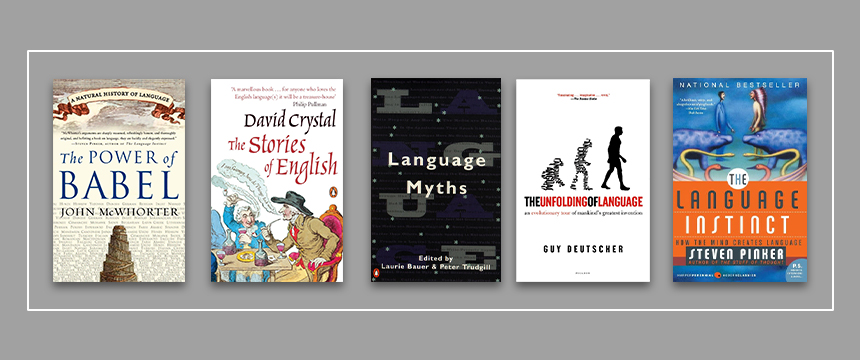
- Language Myths by Laurie Bauer and Peter Trudgill.
- The Power of Babel: A Natural History of Language by John McWhorter.
- The Stories of English by David Crystal.
- The Language Instinct: How the Mind Creates Language by David Pinker.
- The Unfolding of Language by Guy Deutscher.
Top Famous Linguists in the World
Following are the most famous linguists of all time that have done remarkable work and presented thought-provoking linguistic concepts. Let’s have a closer look at the life journeys and achievements of these well-known linguists.
1. Noam Chomsky (1928–)
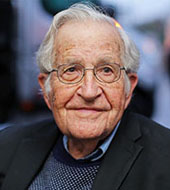
Currently, a professor at the University of Arizona, Noam Chomsky is well-known for his groundbreaking theories on universal grammar, famously termed as Chomsky Hierarchy. He is also one of the world’s top intellectuals and is the author of more than 100 books on linguistics. The idea of universal grammar stipulates that all languages have the same underlying structure and are different only on the surface through the use of words and sounds. Furthermore, he proposed that humans are naturally equipped with an innate ability to learn the language.
2. Ferdinand de Saussure (1857-1913)
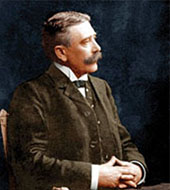
Ferdinand de Saussure is one of the forefathers of linguistics and semiology, a philosophical study of the interpretation of signs and symbols. He is well-known for his study of comparative linguistics. Saussure introduced the idea that every word is, in fact, a linguistic sign, consisting of two components—the signifier (the phonetic form of a word) and the signified (the conceptual meaning). Consequently, this theory is a tenet of modern linguistics of today.
3. Roman Jakobson (1896-1982)
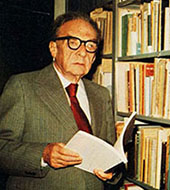
An influential Russian-born linguist, Roman Jakobson had many notable ideas about language. His most remarkable work lay in changing the meaning of the word phonology—the sound structure of language. He essentially was of the idea that all sounds of speech are marked by binary contrasts that can be quantified. Although this idea has been studied over the years, it has allowed linguists to classify the sounds of speech in an organized manner.
4. Edward Sapir (1884-1939)
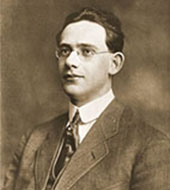
A linguistic anthropologist by profession, Edward Sapir is famous for his classification of indigenous American languages. He introduced the concept of linguistic relativity, which he had developed with his student, Benjamin Whorf. This hypothesis points out that the language a person speaks drastically influences the way in which he perceives the world. Although this hypothesis has been largely dismissed by modern-day linguists, it was the topic of discussion regarding the link between language and culture.
5. Eve Clark (1942–)
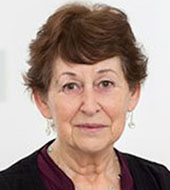
Eve Clark is a British linguist currently working at Stanford University. She is a pioneer in the area of first language acquisition. Her work revolved around how the first language was first acquired by man and how children acquire it today. She proposed that children pick up the language from babbling to coherent speech, and do so with such efficiency and success. Moreover, her work will ultimately help future linguists to understand how to maximize efficiency in speech and how to pick up a second language.
6. Paul Grice (1913-1988)
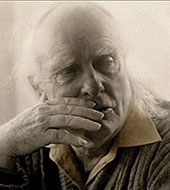
Perhaps the most important contributor to pragmatics, Paul Grice holds a name on the list of famous linguists. This study of pragmatics relates to how context contributes to meaning. One of his best-known ideas is a cooperative principle which explains how people behave in conversations. In addition, he stipulates that the speaker must be truthful, unambiguous, and relevant. If the speaker violates these principles, a compromise on communication occurs.
7. Steven Pinker (1954–)
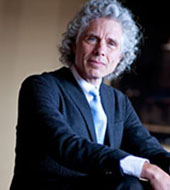
Steven Pinker is a well-known linguist for his work on the biological basis of language acquisition. He proposes that language is an instinct. This means that it is a behavior that comes into shape by natural selection. This language has also adapted to suit the needs of human communication over time. Moreover, his interesting books have made huge strides in making the linguistics field popular and accessible to people outside the academic field.
8. David Crystal (1941–)
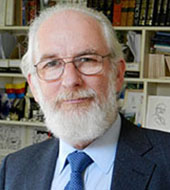
David Crystal is a British linguist who further studied language acquisition by children. He proposed that children learn in amorphous stages through trial and error in order to successfully learn the language. Moreover, he stipulated that they learn in stages of grammar and through different types of questioning.
9. Umberto Eco (1932-2016)
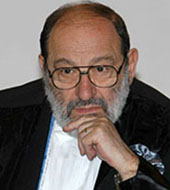
An Italian philosopher, Umberto Eco contributed to the field of semiotics: the study of signs. He proposes that there is a distinction between artificial and natural signs and stipulates that human beings are evolving in a “system of signs”. He also emphasized that in addition to words and language, non-linguistic and natural signs also hold importance.
10. George Lakoff (1941–)
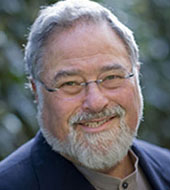
An American cognitive linguist, George Lakoff’s work revolved around the idea and importance of metaphors in linguistics. Moreover, he proposed that metaphors are a linguistic construction and are central to the development of thought.
11. Benjamin Lee Whorf (1897-1941)
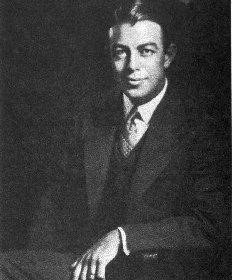
He was an American linguist and also a fire prevention engineer. Benjamin got popular for suggesting the “Sapir Whorf hypothesis” that reflects on the principles of linguistic relativity – the influence of language on thoughts. He was a cognitive linguist who strongly believes in the idea of how you think about the world and your own self is shaped by the language you speak.
12. Noah Webster (1758- 1843)
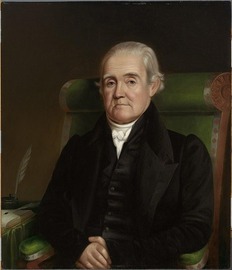
Noah was an American lexicographer, textbook pioneer, political writer, and English language spelling
reformer. He wrote a textbook named “A Grammatical Institute of the English Language”, which has been used to teach children how to spell and pronounce words. He wanted children to learn from American books and he also fought for American English. Not just that he also fought for the abolition of slavery, universal education, copyright laws, and a strong federal government.
13. Leonard Bloomfield (1887-1949)
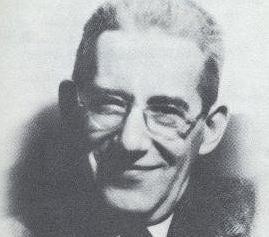
Leonard Bloomfield was an American linguist who worked for the development of structural linguistics. He emphasizes the scientific basis of linguistics; he wanted linguistics to be more objective to become a scientific discipline. Bloomfield also introduced the behavioristic theory of meaning in this textbook language (1933), which defines the situation in which a speaker says something and causes a specific response in the listener.
14. Desiderius Erasmus (Died 1536)
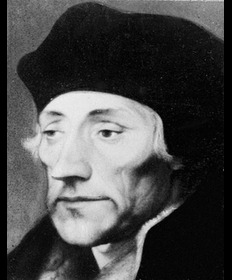
He was a translator, editor, correspondent, satirist, and instigator of Renaissance culture. Desiderius is also
known for his work on Christian New Testament. He wrote many books including, In Praise of Folly, Adagia, and Handbook of the Christian Knight. He is also known as the “Prince of Humanists” because of his advocacy for new curriculum and learning methods, contrary to traditional schooling.
15. Lin Yutang (1895-1976)
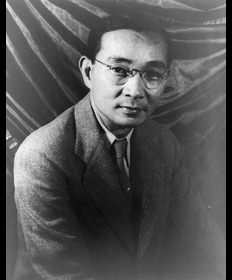
Lin Yutang was a Chinese inventor, linguist, philosopher, novelist, and translator. He used a very informal style in both his English and Chinese writings. Some of his famous
books include The Gay Genius, Moment of Peking, The Importance of Living, and A Leaf in The Storm. He is known as one of the best Chinese writers of the twentieth century. He also invented the Chinese typewriter.
16. Michael Halliday (1925-2018)
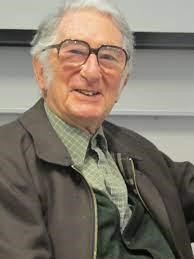
Michael was a British linguist who is known for systemic functional linguistics. According to him, language doesn’t just mimic meaning, but it creates new meaning. He is also famous for his theory of child language acquisition which argues about the impact of language functions in society and how these functions find the language structure. The neo-Fithian theory was also introduced by him that views language as a social phenomenon.
17. Yuri Knorozov (1922-1999)

Yuri Knorozov was a Russian linguist, ethnologist, and epigraphist who greatly contributed to the comprehension of Mayan hieroglyphic writing. He provides evidence that most of the Mayan glyphs were syllabic, which represent sounds instead of ideas. He argues about using these syllables to understand the meaning of words. Knorozov was the very first linguist to unleash the secrets of Mayan scripts.
18. Mary Haas (1910-1996)
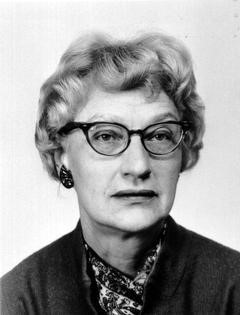
Mary was an American linguist with specializations in Thai, North American Indian languages, and historical linguistics. During World War II, she joined the Army’s specialized training program to teach South Asian languages, where she teaches the Thai language. She also published the Thai English students’ dictionary in 1964, which is in use to date.
19. Charles Peirce (1839-1914)
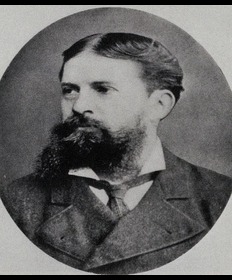
He was an American mathematician, scientist, philosopher, and linguist. Charles Peirce is also known as “the father of pragmatism”. His writing reflects his keen interest in linguistics. Peirce wrote many papers about language and linguistics. In one of his professional writings, he talks about the pronunciation of Shakespearean English. Today, he is identified more as a linguist and founder of general semiotics than a writer.
20. William Labov (1927-)

He is an American linguist, who is also well known as a founder of the variationist sociolinguistics theory.
He majorly investigated the relationship between language and society. As a variationist, William Labov uses a method in which he collects data about a language from various native and non-native speakers and does a comparative analysis of the different ways of saying things and how it changes the meaning derived from them.
Final Say!
The field of linguistics is a broad one, with many advances made by famous linguists throughout history. Their attempts and theories were also aimed at recognizing the language and developing a deeper understanding of how it evolves.
We at MarsCloud, make sure your content is translated into the language of your choice. With the support of our professional linguists and seamless linguistic software, your translations are delivered to you precisely on time. Contact us today and kick-start your global journey!



